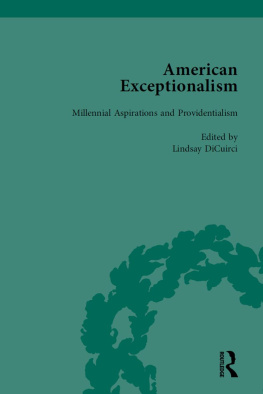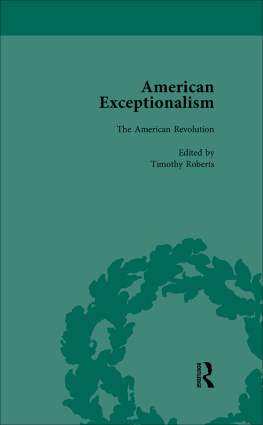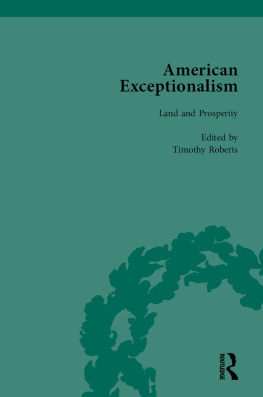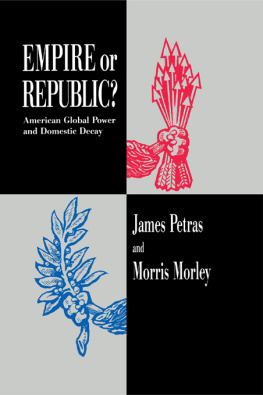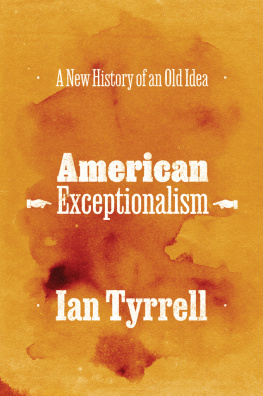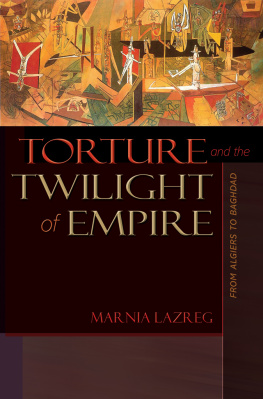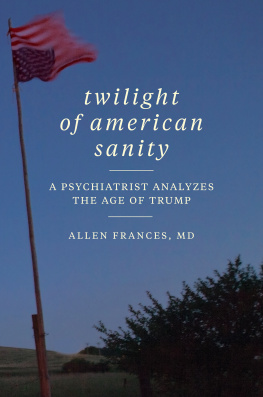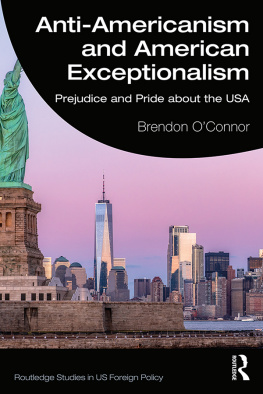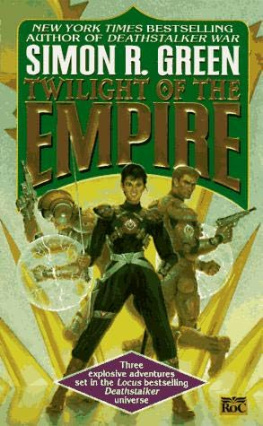Litke - Twilight of the Republic: Empire and Exceptionalism in the American Political Tradition
Here you can read online Litke - Twilight of the Republic: Empire and Exceptionalism in the American Political Tradition full text of the book (entire story) in english for free. Download pdf and epub, get meaning, cover and reviews about this ebook. City: United States, year: 2013, publisher: University Press of Kentucky, genre: Religion. Description of the work, (preface) as well as reviews are available. Best literature library LitArk.com created for fans of good reading and offers a wide selection of genres:
Romance novel
Science fiction
Adventure
Detective
Science
History
Home and family
Prose
Art
Politics
Computer
Non-fiction
Religion
Business
Children
Humor
Choose a favorite category and find really read worthwhile books. Enjoy immersion in the world of imagination, feel the emotions of the characters or learn something new for yourself, make an fascinating discovery.

Twilight of the Republic: Empire and Exceptionalism in the American Political Tradition: summary, description and annotation
We offer to read an annotation, description, summary or preface (depends on what the author of the book "Twilight of the Republic: Empire and Exceptionalism in the American Political Tradition" wrote himself). If you haven't found the necessary information about the book — write in the comments, we will try to find it.
Litke: author's other books
Who wrote Twilight of the Republic: Empire and Exceptionalism in the American Political Tradition? Find out the surname, the name of the author of the book and a list of all author's works by series.
Twilight of the Republic: Empire and Exceptionalism in the American Political Tradition — read online for free the complete book (whole text) full work
Below is the text of the book, divided by pages. System saving the place of the last page read, allows you to conveniently read the book "Twilight of the Republic: Empire and Exceptionalism in the American Political Tradition" online for free, without having to search again every time where you left off. Put a bookmark, and you can go to the page where you finished reading at any time.
Font size:
Interval:
Bookmark:
OF THE
REPUBLIC
Empire and Exceptionalism in the American Political Tradition
JUSTIN B. LITKE

Copyright 2013 by The University Press of Kentucky
Scholarly publisher for the Commonwealth, serving Bellarmine University, Berea College, Centre College of Kentucky, Eastern Kentucky University, The Filson Historical Society, Georgetown College, Kentucky Historical Society, Kentucky State University, Morehead State University, Murray State University, Northern Kentucky University, Transylvania University, University of Kentucky, University of Louisville, and Western Kentucky University.
All rights reserved.
Editorial and Sales Offices: The University Press of Kentucky
663 South Limestone Street, Lexington, Kentucky 40508-4008
www.kentuckypress.com
17 16 15 14 13 5 4 3 2 1
Library of Congress Cataloging-in-Publication Data
Litke, Justin B., 1984
Twilight of the republic : empire and exceptionalism in the American political tradition / Justin B. Litke.
pages cm
Includes bibliographical references and index.
ISBN 978-0-8131-4220-3 (hardcover : alk. paper) ISBN 978-0-8131-4222-7 (epub) ISBN 978-0-8131-4221-0 (pdf)
1. ExceptionalismUnited StatesHistory. 2. National characteristics, AmericanHistory. 3. Political cultureUnited StatesHistory. I. Title.
E169.1.L56 2013
| 306.20973dc23 | 2013010407 |
This book is printed on acid-free paper meeting the requirements of the American National Standard for Permanence in Paper for Printed Library Materials.

Manufactured in the United States of America.
 | Member of the Association of American University Presses |
To Sarah
He hath not dealt so with every nation, neither have they known his judgments.
Psalm 147:20
No more can I think of Port William and the United States in the same thought. A nation is an idea, and Port William is not. Maybe there is no live connection between a little place and a big idea. I think there is not.
Jayber Crow
What you have as heritage,
Take now as task;
For thus you will make it your own!
Johann Wolfgang von Goethe
What happens if a country's worldview is radically changed? If the particular priorities and traditions that informed the life of a people are laid aside, something has to fill the void. New ones are taken up and a new worldview is formed. But what if the changes happen slowly and subtly? What if the changes, once in place, are no longer recognized as changes? The traditions, priorities, actions, and words that formerly characterized that country and that people will live on in documents and monuments, but not in the lives of citizens. In other words, the vital elements of the people's self-conception will be all but lost. The now-changed state of things will be taken for granted. A new self-conception will be arrayed against the original one. This people will act differently but will still try to speak the same. The old, traditional words are spoken, but they are accompanied by new behaviors. Because the same words are used, the new worldview continues be shaped by the old one, but it will be as new wine in old wineskins. The new ways of acting and being will eventually burst the old wineskins and both the wine and the skins will be lost. The people will no longer be who they are and will have forgotten who they were.
This is America today. From colonial times up to the turn of the twentieth century, the country's particular way of acting both domestically and in foreign affairs was fairly circumscribed and inwardly focused. It was a robust, lived political tradition. But over the same period, new self-conceptions and ways of acting entered into American political life, and these gradually changed the meaning of the principal words and symbols used to articulate, interpret, and understand the American political tradition. The words that formerly led Americans to think of themselves in one way now lead them to think and act in thoroughly different ways. The same words from the Constitution, the Declaration of Independence, and seminal colonial documents have come to mean things very different from before. What is more, most citizens today cannot see the change as a change because they are unaware of the tradition as it previously existed. The result has been a great confusion about what constitutes the American political tradition and a consequently decreasing coherence in debates on the role of America in the world and the role of the government in Americans' lives at home. We are at odds with ourselves and we do not know why.
Today America is highly assertive in foreign affairs and highly centralized in its domestic life. American domestic politics is increasingly characterized by populist appeals for solutions from the centerWashingtonand it takes only a passing familiarity with the ideals of the framers of the Constitution to realize how far we have fallen from their republican aspirations. A change has happened, yet some think this change justified.
Perhaps, so goes the argument, today's geopolitical situation demands a political theory and self-understanding that go beyond the scope of republicanism. Republicanism and an older style of representative government may not meet the challenges we face today. Perhaps the world cannot long remain stable without America's ubiquity in commercial, political, and military affairs. Perhaps a retrenchment into the more circumscribed mode of American politics would mean that today's American way of liferelatively dominant and powerful abroad, relatively affluent and peaceful at homewould end. Political problems today are Big Problems. We cannot go back or become more nave, it might be said.
Adopting this view is tempting, but it should by no means be our final word. The persistent principles of American politics have a long and rich history, born of centuries of self-government and reflection. Mere expediency should not overshadow these principles. Who are we as a people? What does it mean to be an American? What is the particularly American understanding of politics? These questions and answers are given by the symbols and myths of our tradition, fashioned out of materials inherited from Western civilization. But today these symbols are unfamiliar to many. If we are currently at odds with ourselves, if we currently lack a coherent account of politics, and if we wish to see with fresh eyes the nature of the American political tradition, a reassessment of those symbols is in order.
In studying the foundations of the American political tradition and in measuring the figurative distance between today's America and yesterday's, we gain an even better perspective on the republican crisis confronting us. This crisis is manifest in a decreased ability of Americans to participate in their own governance and an increased perception of the need for top-down solutions both at home and abroad. The mass politics warned against in the wake of the Second World War has largely come to pass.
We stand at a fork in the road. Whether we remain on our current pathwhich leads farther and farther away from the American political tradition as it was even as we pay lip service to that tradition and its founderswill be known only in time. If we are to resist the inertia of the present moment and actively choose a better way ahead, the best first step is a reflective inquiry into the nature of the American political tradition. We must have a ready and plausible answer to the more theoretical and reflective question, Who are we as a people, as Americans? before we can have an answer to the practical question, Where do we go from here? This inquiry can only begin to answer the former question and, properly, seeks to leave the latter one to all citizens. Madison, among others, feared the consequences of imperialism abroad on self-government at home. Tocqueville, among others, foresaw the possible future temptation of Americans to prefer an equality in servitude to inequality in liberty. But if republicanism is still the aim of American politics, we need to take a long look into the mirror of our own political tradition, to regain a sense of who we are as a country and as a people, and to begin living up to the high examples of our past.
Font size:
Interval:
Bookmark:
Similar books «Twilight of the Republic: Empire and Exceptionalism in the American Political Tradition»
Look at similar books to Twilight of the Republic: Empire and Exceptionalism in the American Political Tradition. We have selected literature similar in name and meaning in the hope of providing readers with more options to find new, interesting, not yet read works.
Discussion, reviews of the book Twilight of the Republic: Empire and Exceptionalism in the American Political Tradition and just readers' own opinions. Leave your comments, write what you think about the work, its meaning or the main characters. Specify what exactly you liked and what you didn't like, and why you think so.

